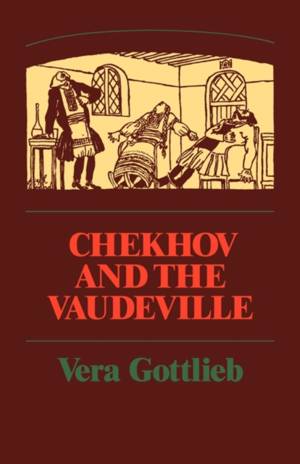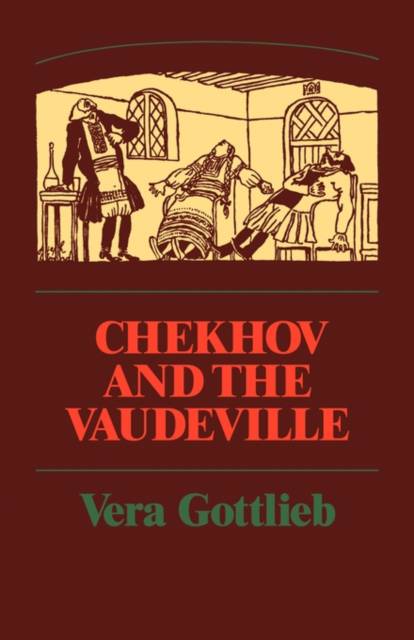
Je cadeautjes zeker op tijd in huis hebben voor de feestdagen? Kom langs in onze winkels en vind het perfecte geschenk!
- Afhalen na 1 uur in een winkel met voorraad
- Gratis thuislevering in België vanaf € 30
- Ruim aanbod met 7 miljoen producten
Je cadeautjes zeker op tijd in huis hebben voor de feestdagen? Kom langs in onze winkels en vind het perfecte geschenk!
- Afhalen na 1 uur in een winkel met voorraad
- Gratis thuislevering in België vanaf € 30
- Ruim aanbod met 7 miljoen producten
Zoeken
Chekhov and the Vaudeville
A Study of Chekhov's One-Act Plays
Vera Gottlieb, Gottlieb Vera
Paperback | Engels
€ 73,95
+ 147 punten
Omschrijving
This book examines the strangely neglected area of Chekhov's one-act plays and the evolution of his comedy techniques. These short pieces, written between 1885 and 1903, reveal many of the comic and distancing effects which are to be found in the major plays. Still frequently performed, they tell us as much about Chekhov's philosophy as his use of theatre, and justify his view of himself as a writer of comedies. Vera Gottlieb describes the playwright's approach to theatre in the light of contemporary Russian traditions: a succinct résumé of French comedy and vaudeville on the Russian stage provides the background for an interesting assessment of the degree of innovation in Chekhov's one-act plays. Russian sources have been used extensively, while an appendix includes new translations of two little-known theatre sketches by Chekhov. This 1982 book is a vital addition to criticism of Chekhov and the Russian stage.
Specificaties
Betrokkenen
- Auteur(s):
- Uitgeverij:
Inhoud
- Aantal bladzijden:
- 240
- Taal:
- Engels
Eigenschappen
- Productcode (EAN):
- 9780521136983
- Verschijningsdatum:
- 25/02/2010
- Uitvoering:
- Paperback
- Formaat:
- Trade paperback (VS)
- Afmetingen:
- 140 mm x 216 mm
- Gewicht:
- 308 g

Alleen bij Standaard Boekhandel
+ 147 punten op je klantenkaart van Standaard Boekhandel
Beoordelingen
We publiceren alleen reviews die voldoen aan de voorwaarden voor reviews. Bekijk onze voorwaarden voor reviews.









